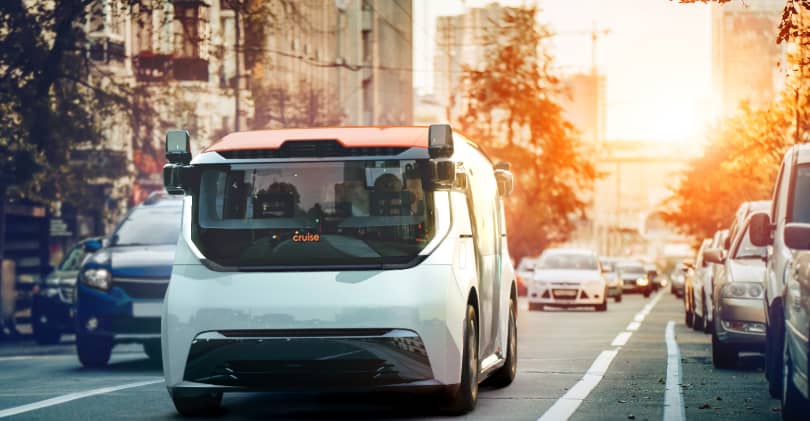Cruise expects GM to begin production of new driverless vehicle in early 2023

Cruise Origin
Cruise
Cruise, a majority-owned autonomous vehicle subsidiary of General Motors, expects production of its driverless shuttle called the Origin to begin in early 2023.
Cruise CEO Dan Ammann disclosed the timing Thursday, giving the most detailed time frame yet for the vehicle as well as potential commercialization of its autonomous vehicle business starting before then.
The Origin is the company’s first vehicle specifically designed to operate without a driver on board. It does not have manual controls such as pedals or a steering wheel. Cruise’s current test fleet is comprised of hundreds of custom Chevrolet Bolt EVs equipped with driverless technology. Ammann said that fleet, which it plans to launch operations with, will continue to expand until the Origin goes into production.
“That will continue to take shape over the balance of this year and next, but where it really starts to scale up is when the Cruise Origin begins production and goes into high volume,” Ammann said. “That’s when you’ll see things really start to take off.”
The comments come a day after Reuters reported Cruise and rival Waymo have applied for permits needed to eventually start charging for rides and delivery using autonomous vehicles in San Francisco. Neither company revealed when they intend to launch services, according to the report.
When asked a hypothetical question about operations beginning within the next two to three years, Ammann said that “sounds reasonable to me.”
His comments echoed those of GM CEO Mary Barra. In March, she said the company was “confident” that Cruise would launch and commercialize operations “sooner than many people think.”
Cruise Chief Technology Officer Kyle Vogt (left) with Voyage CEO Oliver Cameron, who will join Cruise as part of an acquisition of the company.
Voyage
Commercializing autonomous vehicles has been far more challenging than many predicted even a few years ago. The challenges have led to a consolidation in the autonomous vehicle sector after years of enthusiasm touting the technology as the next multitrillion-dollar market for transportation companies.
Some companies, such as Uber Technologies, have given up on developing the systems in-house, while others such as Zoox sold to Amazon. Alphabet’s Waymo remains the most high-profile front-runner, operating a public autonomous vehicle fleet in Arizona.
Cruise was expected to launch a ride-hailing service for the public in San Francisco in 2019. The company delayed those plans that year to conduct further testing. It has been operating an employee ride-hailing service with a current fleet of autonomous vehicles in San Francisco for several years.
GM acquired Cruise in 2017. Since then, it has brought on investors such as Honda Motor, Softbank Vision Fund and, more recently, Walmart and Microsoft.
The Origin is expected to be produced by GM at its Detroit-Hamtramck plant in Michigan.




